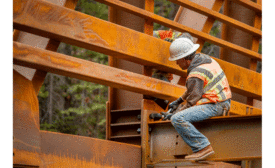News
Johns Hopkins researchers: Climate change threatens to unlock new microbes, increase heat-related illness and death
Bloomberg Distinguished Professors Ahima and Casadevall warn of new infectious diseases and problems related to thermoregulation
January 23, 2020
Never miss the latest news and trends driving the safety industry
eNewsletter | Website | eMagazine
JOIN TODAYCopyright ©2024. All Rights Reserved BNP Media.
Design, CMS, Hosting & Web Development :: ePublishing









